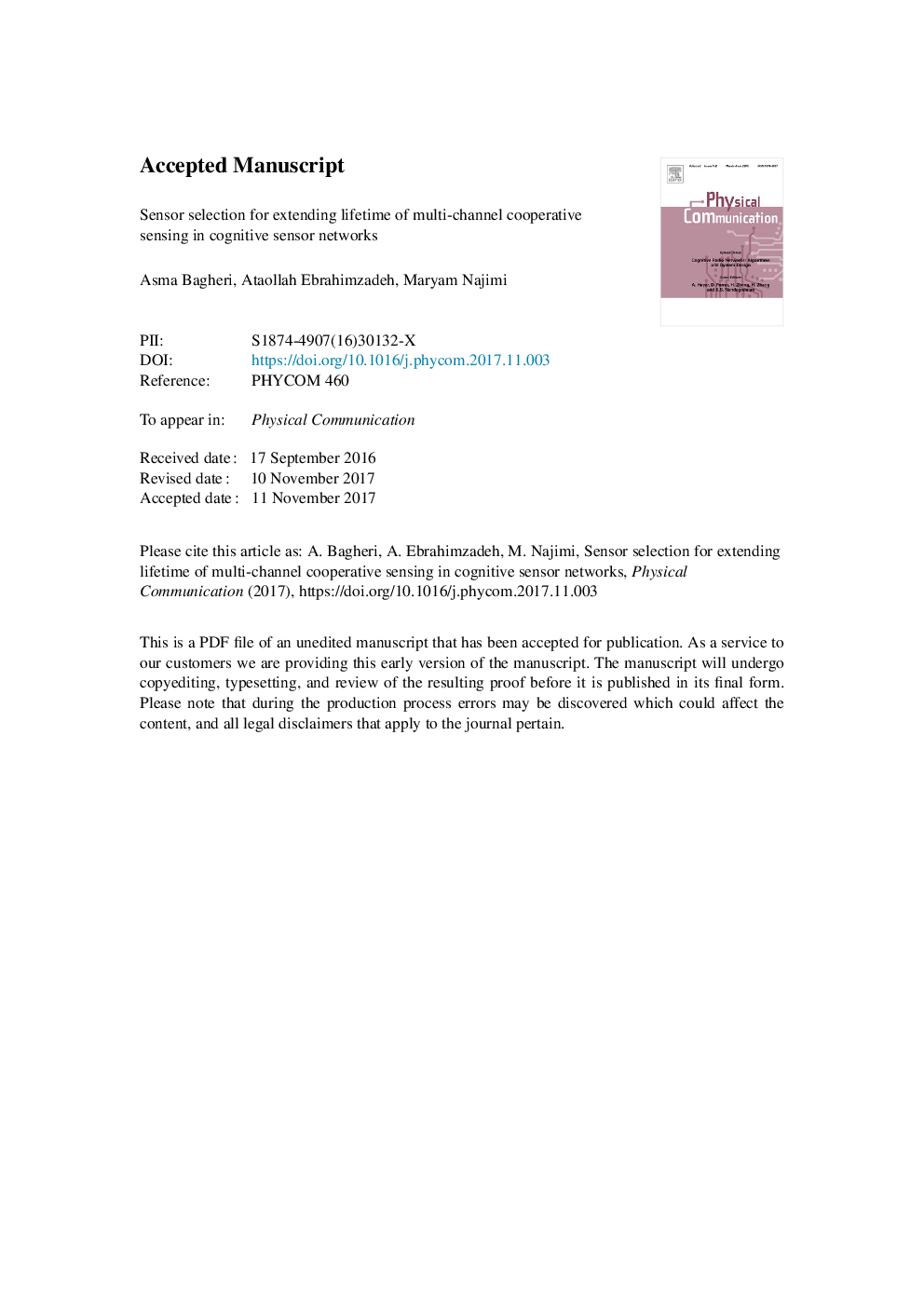| Article ID | Journal | Published Year | Pages | File Type |
|---|---|---|---|---|
| 6889176 | Physical Communication | 2018 | 14 Pages |
Abstract
Wireless cognitive sensor networks (WCSNs) are composed of tiny, low-power and low-cost sensors. An important function of these networks is to sense the channels in order to find the spectrum holes. Sensors cannot sense more than one channel simultaneously because they do not have high-speed Analog-to-Digital-Converters (ADCs) which need high-power batteries. Therefore, it is a challenging issue to select cooperative sensors to sense different channels so that all the channels can be sensed simultaneously. On the other hand, lifetime extending in a WCSN is an important issue; it has attracted the most attention recently. In this paper, a tuneable receiver is used for sensors so that they can sense different channels in different sensing periods. To reduce energy consumption, node selection is proposed so that only sufficient nodes perform sensing the channels while the sensing quality constraints are met. A subset of nodes to sense every channel is selected in a way that the residual energy of sensors is balanced and the network lifetime is maximized. The problem can be solved based on the convex optimization framework. Closed form priorities of sensors to sense different channels are determined based on their residual energy, distance and detection probability. Then efficient dynamic sensor selection algorithms are proposed for multi-channel CSS. Simulation results show the advantages of the proposed algorithms in finding the efficient answer. In addition, in terms of network lifetime, success percentage, and energy consumption, the proposed algorithms are compared with the other sensor selection methods.
Related Topics
Physical Sciences and Engineering
Computer Science
Computer Networks and Communications
Authors
Asma Bagheri, Ataollah Ebrahimzadeh, Maryam Najimi,
